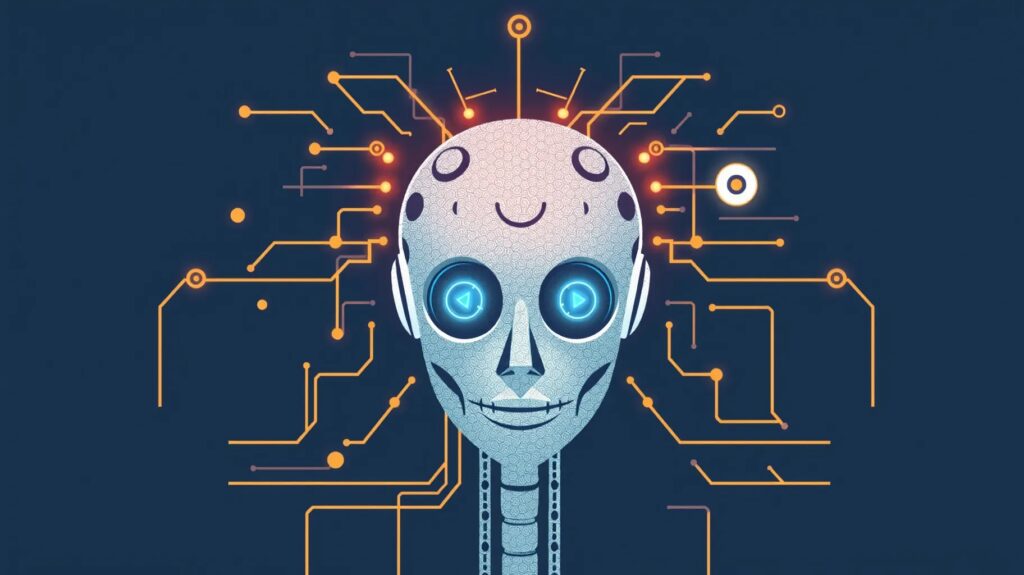Transforming Business: The AI Revolution

In today’s fast-paced world, businesses are turning to Artificial Intelligence (AI) to stay ahead of the curve. This comprehensive guide delves into the growing influence of AI in business, exploring key technologies, applications, and market dynamics. Whether you’re a business owner, an investor, or just curious about AI’s impact, this article offers detailed insights and strategic recommendations.
Market Overview
Global AI Market Size and Growth
The global AI market has seen exponential growth in recent years. According to recent reports, the market was valued at approximately $39.9 billion in 2019 and is projected to reach $733.7 billion by 2027. This rapid growth is driven by technological advancements, increasing data availability, and the need for operational efficiency.
Key Market Segments
- AI Software: Encompasses machine learning, natural language processing, and data analytics. Dominates the market due to its versatility and wide application range.
- AI Hardware: Includes specialized processors and hardware designed for AI tasks. This segment supports the software, ensuring faster and more efficient processing.
- AI Services: Consulting, implementation, and support services that help businesses integrate AI into their operations.
AI Applications in Business
Customer Service
AI is revolutionizing customer service through chatbots and virtual assistants. These tools offer 24/7 support, handling queries and providing solutions in real-time. For instance, companies like Zendesk and Intercom leverage AI to enhance customer interaction and satisfaction.
Marketing and Sales
In marketing and sales, AI enables personalized marketing and sales forecasting. By analyzing consumer behavior and preferences, AI tools help create targeted campaigns that boost engagement and conversion rates. Brands like Amazon use AI to recommend products, significantly increasing their sales.
Operations and Supply Chain
AI improves operations and supply chain management through predictive analytics and inventory management. Predictive analytics forecasts demand, helping businesses manage inventory efficiently and reduce waste. Walmart is a prime example, using AI to optimize its supply chain operations.
Human Resources
AI in HR streamlines recruitment and talent management. AI-powered tools can sift through resumes quickly, identifying the best candidates. Additionally, AI helps in monitoring employee performance and providing insights for improvement. Companies like LinkedIn use AI to match candidates with suitable job opportunities.
Finance and Accounting
AI enhances fraud detection and automated financial analysis in the finance sector. By analyzing transaction patterns, AI systems can identify fraudulent activities and alert authorities. Moreover, AI automates routine financial tasks, freeing up time for strategic decision-making. JPMorgan Chase employs AI to detect fraud and streamline financial operations.
Key Technologies Driving AI in Business
Machine Learning (ML)
Machine Learning, a subset of AI, enables systems to learn from data and improve over time without being explicitly programmed. Businesses use ML for predictive analytics, customer segmentation, and recommendation systems.
Natural Language Processing (NLP)
NLP allows computers to understand and respond to human language. It’s widely used in customer service chatbots, sentiment analysis, and content generation. Google’s BERT is a prime example of NLP in action, enhancing search engine capabilities.
Robotic Process Automation (RPA)
RPA automates repetitive and mundane tasks, increasing efficiency and reducing errors. It’s particularly useful in back-office operations, such as data entry and invoice processing. UiPath is a leading provider of RPA solutions, helping businesses streamline their workflows.
Computer Vision
Computer Vision enables machines to interpret and make decisions based on visual inputs. It’s used in quality inspection, facial recognition, and autonomous vehicles. Tesla leverages computer vision for its self-driving technology, pushing the boundaries of innovation.
Market Drivers
Technological Advancements
Continuous improvements in algorithms and computing power drive AI adoption. Innovations like quantum computing promise to revolutionize AI capabilities, making them more efficient and powerful.
Data Availability
The explosion of big data has been a catalyst for AI growth. With more data available, AI systems can learn better and provide more accurate insights. Companies like Facebook and Google thrive on data, using it to enhance their AI systems.
Business Demand for Efficiency
Businesses are under constant pressure to reduce costs and improve efficiency. AI offers solutions that automate processes, reduce errors, and optimize resources. McKinsey & Company reports that AI can potentially deliver $13 trillion in additional global economic activity by 2030.
Competitive Pressure
In a highly competitive market, staying ahead with innovative technologies is crucial. Companies that adopt AI can gain a significant competitive edge, leading to increased market share and profitability. Netflix uses AI for content recommendations, giving it an edge over competitors.
Market Challenges
High Implementation Costs
The initial investment in AI can be substantial. Businesses must consider the costs of hardware, software, and training. However, the long-term benefits often outweigh these initial costs.
Skill Shortages
There’s a significant shortage of skilled AI professionals. Companies need to invest in training and development to build their AI capabilities. According to a LinkedIn report, AI skills are among the fastest-growing job categories.
Data Privacy and Security
Managing sensitive information and ensuring data privacy is a major challenge. Businesses must comply with regulations like GDPR and CCPA to avoid hefty fines and reputational damage.
Ethical and Regulatory Issues
AI raises ethical and regulatory concerns, such as bias in algorithms and decision-making transparency. Companies need to adopt ethical AI practices and stay updated with regulatory changes to mitigate these issues.
Key Players in the AI Market
Major Companies
- Google: A leader in AI research and development, with products like Google Assistant and Google Cloud AI.
- IBM: Known for its Watson AI platform, which offers solutions for various industries.
- Microsoft: Provides AI services through Azure AI, helping businesses integrate AI into their operations.
- Amazon Web Services (AWS): Offers a comprehensive suite of AI services and tools for developers.
- Oracle: Uses AI to enhance its cloud services, providing robust solutions for enterprises.
Startups and Innovators
Emerging companies are making significant contributions to AI. Startups like OpenAI and C3.ai are at the forefront, pushing the boundaries of what’s possible with AI.
Regional Analysis
North America
North America leads the AI market, with the US being a hub for AI research and development. Major tech companies and startups in Silicon Valley drive innovation and adoption.
Europe
Europe is rapidly adopting AI, focusing on regulations and ethical AI practices. The EU’s AI strategy aims to foster innovation while ensuring compliance with ethical standards.
Asia-Pacific
The Asia-Pacific region is experiencing significant growth in AI adoption. Countries like China and Japan invest heavily in AI research, contributing to the market’s expansion.
Rest of the World
Emerging markets in Latin America, Africa, and the Middle East show potential for AI growth. These regions are increasingly adopting AI to drive economic development and innovation.
Future Trends
AI Integration with IoT
The integration of AI with the Internet of Things (IoT) is a game-changer. It enables enhanced data collection and real-time analytics, improving decision-making and operational efficiency.
Edge AI
Edge AI brings processing closer to data sources, reducing latency and improving speed. This technology is crucial for applications requiring real-time responses, such as autonomous vehicles and smart cities.
Explainable AI
As AI becomes more complex, explainable AI is gaining importance. It focuses on making AI decisions transparent and understandable, building trust and ensuring compliance with regulations.
AI in New Business Domains
AI is expanding into new business domains, such as healthcare, education, and agriculture. These industries are leveraging AI to innovate and improve their services, driving growth and efficiency.
Conclusion
AI is transforming business operations across various sectors, offering unprecedented opportunities for growth and efficiency. Companies that embrace AI can gain a significant competitive edge, driving innovation and profitability. As AI continues to evolve, staying updated with the latest trends and technologies is crucial for businesses aiming to thrive in the digital age.
References
- Academic Journals and Articles
- Artificial Intelligence Review
- Journal of Artificial Intelligence Research
- Industry Reports and Whitepapers
- McKinsey Global Institute
- Gartner AI Reports
- Case Studies and Market Surveys
- PwC AI Case Studies
- Deloitte AI Market Survey
Appendices
- Glossary of AI Terms
- Machine Learning (ML): A type of AI that enables systems to learn and improve from experience without being explicitly programmed.
- Natural Language Processing (NLP): A field of AI that focuses on the interaction between computers and humans through natural language.
- Robotic Process Automation (RPA): The use of software robots to automate highly repetitive and routine tasks.
- Computer Vision: An AI field that enables computers to interpret and make decisions based on visual data.
- Additional Charts and Graphs
- Global AI Market Growth Projections
- AI Adoption Rates by Region
- Detailed Case Studies
- Walmart’s AI-driven Supply Chain Management
- JPMorgan Chase’s AI-powered Fraud Detection System





